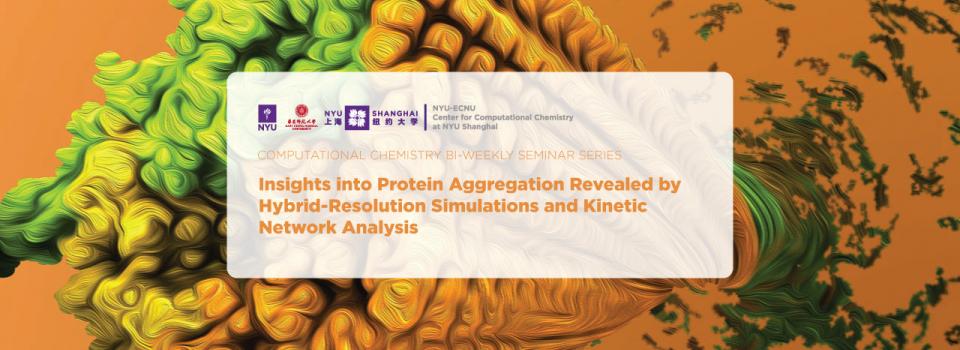
Abstract:
Uncontrollable aggregation of proteins is a central hallmark of numerous neurodegenerative diseases. During the aggregation, soluble proteins are converted into aggregates rich in beta structures through a series of molecular events of protein-protein interactions and structural transitions. Understanding these events in atomic details is invaluable for devising disease treatment. Molecular simulations are in general useful in characterizing atomic details of biomolecular processes but remains limited in study of protein aggregation due to the need to perform simulations at very long timescales. To overcome this challenge, we have developed a multiscale model that mixes representations at different resolutions and can simulate efficiently structural variations of proteins with atomic accuracy. Analyses of these simulations with kinetic network models further enable characterization of complex free energy landscapes of protein aggregation. In this talk, I will present our efforts in applying this approach to understand two key events of aggregation, namely nucleation and elongation, for amyloid-beta proteins associated with the Alzheimer’s Disease. Our studies reveal full atomic pictures of structural transitions during these processes, explaining puzzling experimental observations regarding regional selectivity in Abeta for nucleation and unidirectional growth of Abeta aggregates. Finally, I will also discuss our recent computational results based on which a potential inhibitor of aggregation has been identified.
Biography:
Dr. Wei Han got his bachelor degree in chemistry at Peking University in 2002. He finished his Ph.D. study in Professor Yun-dong Wu’s lab at the Hong Kong University of Science and Technology in 2008. He moved to the States and worked as a Post-doctoral Research Associate with Professor Klaus Shulten at University of Illinois at Urbana-Champaign where he participated in the development of the simulation software NAMD. In 2015, he joined as an Assistant Professor in the department of chemical biology and biotechnology at Peking University Shenzhen Graduate School. The current major research interest of his lab is the development of multiscale simulation methods and application of these methods in study of protein-protein interactions and protein aggregation. He has received several honours and awards, including the finalist of the outstanding Hong Kong young scientist competition in 2009 and the “1000-talented youth” award in 2016.
Bi-Weekly Seminar Series by the NYU-ECNU Center for Computational Chemistry at NYU Shanghai


